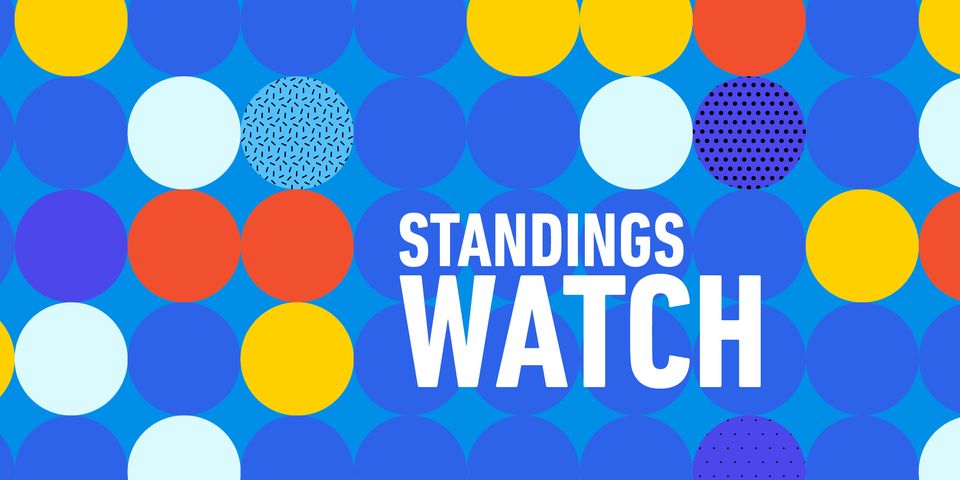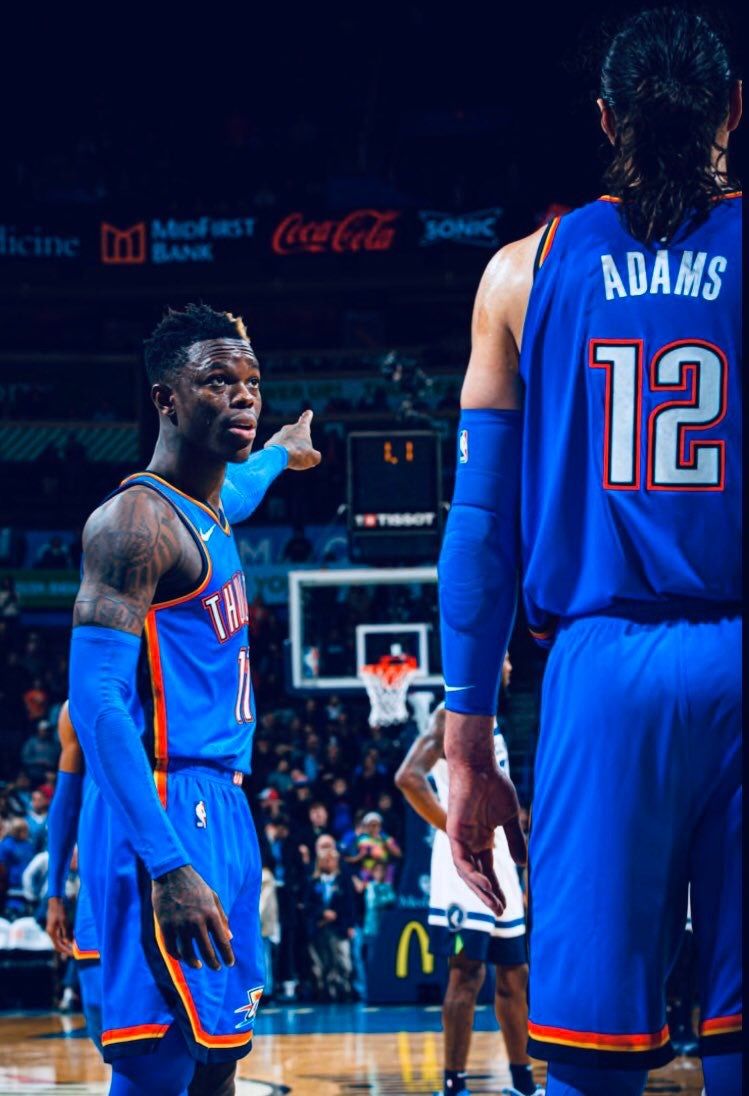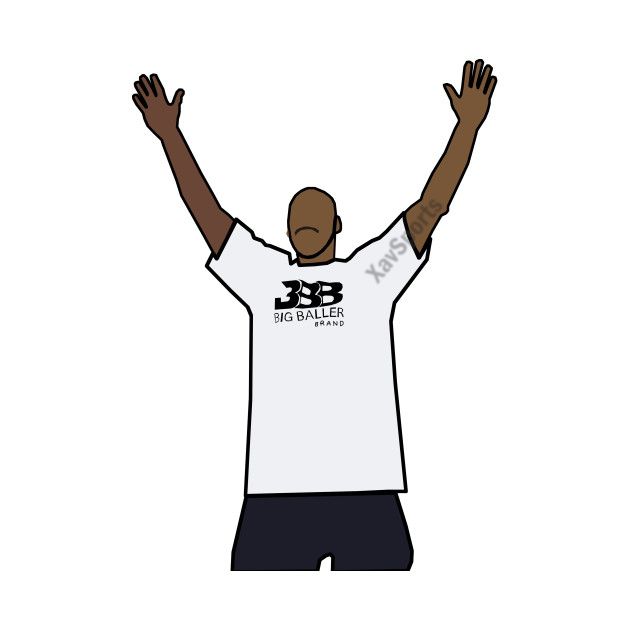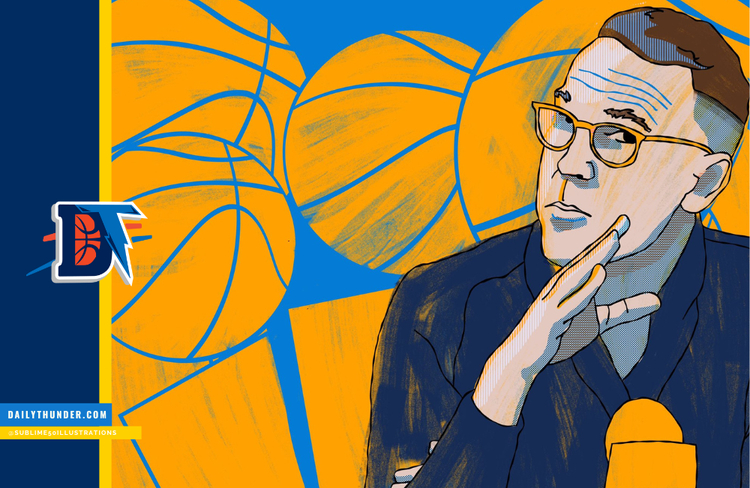Standings Watch: Are the Thunder winning too many games?

Despite a soul-crushing postseason exit this spring and a stunning roster blowup to follow, a lot has gone right for the Thunder in 2019. Having survived the team’s first superstar exits (James Harden and then Kevin Durant) with infamously low return value and limited cap flexibility, the team turned the tables and recouped premium assets in trades sending away Paul George and Russell Westbrook this summer. Not only did they receive The Haul to End All Hauls in draft pick compensation, but the players coming back for salary-matching purposes were actually all very good, and mostly positive assets themselves: Danilo Gallinari, Shai Gilgeous-Alexander, and Chris Paul.
Oklahoma City is playing hard, developing young players, maintaining the trade value of veterans still on the roster, and keeping the home crowd entertained. At 10-12, the team sits in a three-way tie for the seventh seed in the Western Conference. They’ve started as strong out of the gate through their first 22 contests as they did a couple seasons ago, minus the disappointment and frustration that goes along with the expectations that squad (featuring Westbrook, George, and In Theory Carmelo Anthony) had.
It’s been fun. And as there’s no team with a better net rating behind OKC in the standings, they are legitimately doing the proverbial “flirting with the playoffs” thing.
The problem is, an innocent game of postseason footsie might end in disaster.
The conundrum: wins or odds?

The rebuild is upon us, by whatever name you want to call it. Another team in the Thunder’s spot in the standings would be scouring the trade and eventual buyout market for improvements to shore up their performance and lock up a playoff berth. But Sam Presti has made it clear that he won’t be giving up any future flexibility or assets in order to improve the “short-term” results. So they’re not going to get better, especially if oft-injured players like Gallinari or Paul miss extended time.
But jokes about Abdel Nader starting the last couple games aside, the Thunder clearly aren’t following any directives to limit their winning odds from the top, and have even leaned more on their veterans as the season has progressed. Paul played 39 minutes in the Thunder’s overtime win over the Sixers on November 15. Before that game, he’d averaged 29.5 minutes played per game. Since, he’s been at 32.5. Even if he’s not long for Oklahoma City, Paul doesn’t want to sit, and he definitely doesn’t want to lose. He hasn’t been load managed at all, and Steven Adams has even been playing through an injured knee.
A game here or there, or a little less time on the bench, can alter the win/loss column and as a result, the team’s future. Just as every point, every second, is precious in an NBA game, so is every ping pong ball in the rebuilding game.
The team’s amazing comeback against the Wolves the other night is emblematic of this conundrum. Would you rather watch veteran savvy and skill, in the form of a full-court Hail Mary and rules exploitation, flip a likely loss into an eventual win over the course of 1.1 seconds of game clock, or would you prefer to see younger players give up that kind of game as part of their growing pains?
It’s an easy choice as a viewer (more classic finishes, please), but the latter option is almost assuredly better for the Thunder of tomorrow: more missed Terrance Ferguson threes while the game slips away are just what the doctor ordered.
Eye on the prize
If you don’t think winning fewer games this season would be worth it, have I got some bad news for you: the team is unlikely to get better next season. Remember Presti’s explicit signaling of the rebuild, which is something we know he will be disciplined about. So unless rival executives are just willing to give the Thunder younger, better players than they already have for free, OKC won’t be making eyes at the eighth seed much longer.
So if they’re going to be less than stellar for a while anyway, why not scoop up the best lottery picks possible so the eventual upswing has more promise? Not because losing is fun, or that consistently competitive action isn’t valuable for developing players. But because the race to the title is always a race to acquiring Hall of Famers.
As well as Presti has done at the top of the draft, he can’t control who is available. There’s not a supreme talent at the top every year, and if another GM with drafting prowess is ahead of Presti even by a single spot, he might not have a path to the one who is. If you jump two out of three years into the very top of the draft, you might end up sitting out the year Anthony Davis is available and have a run at much more underwhelming top-tier prospects like Markelle Fultz, Lonzo Ball, Jayson Tatum, Dragan Bender, Kris Dunn, Buddy Hield, and Jamal Murray instead.
If there were no top-5 picks leading up to the Thunder’s run of dominance, there would have been no Durant, no Westbrook, no Harden, and nothing like the prolonged success the fans enjoyed for the last decade. As well has Presti has hit on some later picks, the very top of the draft was and still is his promised land for talent acquisition.
What happens if they make the playoffs?
Presumably, the Thunder will trade away a veteran or two (or three or four) before the trade deadline. Elements like Paul’s stubborn brilliance and Gallinari’s spontaneous combustions are keeping the Thunder in games whether Gilgeous-Alexander’s shots are falling on any given night. Take away some of that, and even the accelerated development of players like SGA and Hamildou Diallo won’t keep a thinned roster from losing a larger share of its games and dropping out of the race.
But crazy things happen as the season winds down. The Thunder benefited from this recently, when a combination of shameless trying and not trying to win or lose games across the league conspired to miraculously gift them the third seed in the 2019 playoffs. Playoff-hopefuls can fire up the tank (see Golden State, both in 2011/12 and this season) in a hurry, and early-season surprises can come down to earth
3.
Let’s say the roster remains more stagnant than I expect, or plays above their heads even after some shakeups. Playoffs or not, the Thunder’s first round pick still looks very secure. 5+ games and 5+ teams stand in the way of finishing at 10th or better on the season, which is where they’d have to land to cough up their first round pick to the Sixers since it’s protected for selections 1 through 20. The 19th spot in the reverse standings looks to be about their worst possible finish (they’re hovering around three games out from that slot).
So they’ll be drafting next summer. While the difference between selecting at 14 or 15 might seem negligible, it’s actually enormous. There’s only a miniscule chance at jumping from the end of the lottery to a top-four (1.8%) or even first-overall (0.5%) pick. It’s still a chance. Getting locked out of the lottery by punching your postseason ticket gives you an absolute zero chance of moving into the top tier.
2Durant was better than a 1-in-200 player to say the least. Same for Westbrook, Harden–even a player of Adams’ ilk is tough to bank on with a high lottery pick. Would you pass on a 1-in-200 chance at the next Westbrook, or the kind of great role player necessary to complement a star with, just to lose in a first-round playoff series?
Missing the playoffs is (probably) not enough
Isn’t it enough for fans to endure a fun season doomed to end without a postseason appearance? Not if they really want more, deeper postseason appearances ahead.

While the smoothed lottery odds do mean that teams not at the very bottom of the standings have a better chance to leap to the top (see: New Orleans, Memphis, and Los Angeles vaulting into the top-four this year), it also means the bubble lottery teams who don’t ascend are more likely to get jumped. The ping pong balls converted top-6 draft order finishes for Atlanta and Washington into the 8th and 9th pick, respectively, under the new lottery format. The difference between picking at 5 and 8 can be the difference between getting a Hall of Famer like Kevin Garnett or Dwyane Wade and winding up with a dud like Shawn Respert or T.J. Ford.
All of these specific examples of past draft selections are, like hindsight draft talk always is, mostly silly. But granting that the draft, even at the very top, can often be something of a crapshoot doesn’t devalue the highest slots one bit. Why? Because everyone wants them, and you have to pay to get them if the ping pongs don’t land in your favor. Moving into the top-5 is costly, and could still lead to a bust. Just drawing a good draft position, rather than paying a premium to reach for a player you believe in, gives you more shots at a Hall of Famer by default.
The race is already on
A little sleep, a little slumber, a few declined DNPs, a little “Wait, the other team is letting their players coach the game?” and the Thunder could lose a significant amount of ground to other teams in the hunt for a better pick. They have doubled the wins of three franchises so far this season. They are 6 games better than the Warriors and 4.5 games better than the Pelicans, both of whom have more premium talent to slot a top pick next to next season, should they snatch it.
As December 15 approaches, and the lifted trade restrictions around so many signed players with it, Thunder fans should be feeling greedy. Not for more plucky wins, but for more picks, more flexibility, and yes, more losses to make this season as worthwhile to the team’s reset title path as possible.


